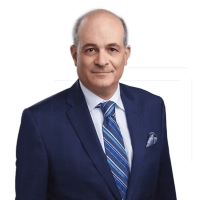How to find the right lawyer for you: 16 top tips
Finding the right lawyer requires careful consideration and informed decision-making, as legal experts consistently emphasize. This comprehensive guide presents essential insights from practicing attorneys and legal professionals who share their most valuable recommendations. Discover practical strategies for identifying qualified legal representation that prioritizes your specific needs, transparent communication, and proven expertise.
- Get Referrals from Other Legal Professionals
- Prioritize Trust and Honest Communication
- Focus on Attentive Listening and Honest Knowledge
- Select Board-Certified Expertise Over Flashy Marketing
- Watch Office Function and Pressure Response
- Choose Attorneys Ready to Litigate Cases
- Examine Similar Case Results and Client Feedback
- Seek Community Recommendations and Personal Stories
- Value Clear Communication and Educational Content
- Verify International Credentials Beyond First Impressions
- Rely on Reputable Referral Sources Not Ads
- Trust Your Gut and Question Court Rush
- Check Local Media for Expert Recognition
- Find Specialists Who Demonstrate Topic Expertise
- Ask About the Full Team Behind Your Case
- Look for Transparency and Community Standing
MORE NEWS: Phoenix bucket list: 25 things you must do
INDUSTRY INSIGHTS: Want more news like this? Get our free newsletter here
Get Referrals from Other Legal Professionals
My top tip is to ignore the billboards and flashy websites. Instead, get a referral from another lawyer. If you know a lawyer—even if they handle real estate or corporate law—ask them who they would hire if they or a family member were facing a DUI or criminal charge. The legal community in a city like Chicago is smaller than you think, and lawyers know who the truly respected and effective attorneys are versus who just has a big marketing budget. A recommendation from another attorney is the best inside information you can get. It tells you who has a strong reputation not just with clients, but with the judges and prosecutors they deal with every day.
When making your final decision, the single most important factor to prioritize is a lawyer’s specific, hands-on experience in the courthouse where your case will be heard. Criminal law is intensely local. It’s not enough to know the law. You need an attorney who knows the local players—the judges’ tendencies, the prosecutors’ strategies, and the unwritten rules of that specific courtroom. An attorney who is in that courthouse daily has an invaluable strategic advantage. You aren’t just hiring their knowledge of the statutes. You’re hiring their knowledge of the system and the people who run it.

Prioritize Trust and Honest Communication
The clients who tell the most vivid stories about lawyers usually start with how overwhelmed they felt before finding the right one. One woman remembered sitting in her car after her first consultation, realizing she understood less after the meeting than she had before it. She left that attorney behind and found someone else who, in her words, “actually listened to what mattered to me and didn’t make me feel like just another file.” That sense of being heard is what turned the tide for her case.
The top tip when searching is to prioritize trust. Court battles are draining, and the lawyer you choose will know more about your personal life than almost anyone else. If you cannot trust them to handle sensitive information with care or to put your best interests first, the relationship will not work. Clients who felt secure often point back to a gut feeling of honesty: a lawyer who admitted when something would be difficult, who didn’t sugarcoat the risks, and who made decisions alongside them rather than over their heads.
Yellow flags appear early. A lawyer who avoids your questions about strategy, who changes their story depending on the day, or who seems more focused on bragging about their wins than understanding your case should raise concern. One father realized his lawyer was “checked out” when he showed up to a hearing unprepared, shuffling through papers he hadn’t read. That was the last straw.
On the other hand, red flags should stop you in your tracks. If you see a lawyer dismissing your concerns, speaking disrespectfully about clients in front of you, or pressuring you to sign agreements you don’t understand, it’s time to walk away. A good lawyer earns trust not through bravado, but by making sure you feel seen, respected, and protected every step of the way.

Focus on Attentive Listening and Honest Knowledge
Reviews and referrals are great, but nothing beats talking to the lawyer and seeing how they interact with you as the potential client. Is the lawyer doing all of the talking or is he/she taking the time to listen to you and what specific issue you are dealing with? Do you feel comfortable talking to the lawyer and think they understand your issue? A big red flag for me is an attorney who is unwilling to acknowledge that he/she does not know something. Lawyers are not supposed to be encyclopedias of information, but rather we are trained to be able to assess a factual situation and apply it to the law and, for litigators at least, be able to present it succinctly and competently on your behalf. If you do not get that impression from any lawyer you talk to on the phone or in a meeting, I suggest finding someone else that is a better fit.

Select Board-Certified Expertise Over Flashy Marketing
Most people pick a lawyer the way they pick a restaurant—by glancing at reviews or relying on a quick recommendation. That might explain why surveys show that more than 60 percent of people looking for an attorney go straight to Google, yet less than 20 percent take the time to verify the lawyer’s actual credentials or disciplinary history. The problem is obvious: what looks good online doesn’t always hold up in the courtroom.
The first factor worth prioritizing is expertise. Data from the American Bar Association shows that fewer than 8 percent of attorneys in Texas are board certified in any specialty, yet clients who work with board-certified lawyers report significantly higher satisfaction and outcomes. Choosing a lawyer who has dedicated years to mastering a specific area of law is far more valuable than choosing one who simply advertises broadly.
Another overlooked step is digging deeper than star ratings. Studies show that more than 70 percent of clients rely primarily on online reviews when choosing an attorney, even though reviews can be manipulated or reflect customer service more than legal skill. A better approach is to ask about actual trial experience and results in cases similar to yours. That kind of track record speaks louder than any five-star score.
When the stakes are high, the smartest choice isn’t the lawyer who shows up first in a search—it’s the one with the proven expertise, demonstrated results, and real capacity to prioritize your case.

Watch Office Function and Pressure Response
Most people pick a lawyer the way they’d pick a takeout spot on a road trip. Quick search, skim some reviews, hope for the best. But when everything’s on the line, that shortcut can cost you. A strong case doesn’t just depend on facts or fault. It depends on who’s walking it into the room for you.
Everyone thinks to check experience or case results, but the smaller things tell you more than a polished bio ever will. First, pay attention to how clearly they explain things. If a lawyer can’t talk to you in plain English, they’re either rushing or don’t really understand the mess you’re in. Clarity is everything. It shows whether they’ve actually spent time doing this work or if they’re just used to talking around problems. Another overlooked detail is how well the office runs. Are your calls returned? Are deadlines kept? A lawyer who’s overwhelmed or disorganized might be brilliant on paper, but that won’t matter if paperwork gets filed late or you’re left guessing what’s next. Finally, watch how they handle pressure in your first meeting. If they jump to conclusions, promise you a win, or seem too casual about your case, they’re likely doing that with everyone. A calm, steady approach early on usually means they’ve been in deep water before and know how to move through it without flailing.
One red flag that should stop you cold is defensiveness. If a lawyer bristles when you ask hard questions or pushes back instead of answering with calm confidence, trust your gut. If they can’t handle your questions now, they won’t hold up when real pressure hits.

Choose Attorneys Ready to Litigate Cases
Google reviews are a good starting point when researching personal injury attorneys, but don’t stop there. The most important question you need to ask is: Does this firm actually litigate cases?
I’ve seen it time and again—firms with hundreds of five-star reviews that sound impressive on paper, but they only handle settlements. They never step foot in a courtroom. While many cases do settle, your attorney needs to be prepared and willing to go to trial if the insurance company refuses to offer fair compensation for the impact the accident has had on your life.
At Pinder Plotkin, we build every case for litigation from day one. This approach completely changes how insurance companies view your claim. They know we’re not afraid to take them to court, and that often leads to better settlement offers. But if they won’t make a just offer? We’re ready to fight for you in front of a jury.
Having been through two serious accidents myself, I understand how insurance companies operate. They’re betting you’ll accept less than you deserve. Don’t let a five-star rating fool you—make sure your attorney has the courtroom experience and willingness to take your case all the way if needed.
Your recovery is our priority, and sometimes that means being prepared to go the distance in court.

Examine Similar Case Results and Client Feedback
If you want to know if a lawyer is reputable, start by looking at how many cases they have handled that are similar to yours and how those cases turned out. Someone with a strong record of good outcomes is usually prepared for what can go wrong and knows what steps to take when things get complicated. That kind of track record means you are dealing with someone who does not just react but actually has experience and a good strategy.
Word of mouth still counts for a lot. If you keep hearing about the same lawyer from people you trust, it is usually because they consistently do a good job and leave a strong impression. People do not tend to recommend someone unless they have actually delivered results or handled a stressful situation well. To get a broader view, look up reviews online. A lawyer who is worth your time will have more than 30 reviews and a rating above 4.5 stars. You want to read reviews that go into detail, not just “thank you” or “great lawyer.” The longer and more specific the comments, the better picture you get of what they are like to work with.
A solid academic background is always a plus, but what makes a real difference is whether a lawyer keeps clients informed. The ones who share updates, answer questions online, or post legal tips usually do it because they want people to actually understand what is happening, not just take orders. This says a lot about how they handle their cases and shows they value transparency and client understanding.
When you first meet with a lawyer, notice if they actually listen to you and if their questions get straight to the heart of your situation. If they take the time to answer in a way that makes sense, and they do not rush you through the meeting, you are likely dealing with someone who is respectful and values clear communication. You should not have to chase them down for answers; if they reply within a day and make the whole process easy to follow, that is a strong sign they will take good care of you if things get difficult. In the end, it is this mix of strong case results, honest recommendations, real feedback from clients, and open, consistent communication that really separates the best lawyers from the rest.

Seek Community Recommendations and Personal Stories
Look for someone who’s actively involved in your community, speaks the language, and is striving to make a real change. They’re the ones who know the challenges inside out and have great experience handling cases like yours. Because a lot of law firms will show up on your search results when you type in your city, but how many of them are lawyers that your friends or neighbors will recommend? That’s the challenge, really.
What you need to look out for then are recommendations and personal experiences from everyone around you. Your friends, neighbors, community groups on Facebook, and even businesses in your area. And what you need to keep an eye out for are names that they recommend with pride. Pay attention to their stories, how they felt throughout the case, and how they were treated. They’ll point you toward someone whose word, work, and commitment you can count on when it matters most.

Value Clear Communication and Educational Content
My advice to anyone would be to pay attention to how a lawyer explains your case to you. A good lawyer should help you understand your rights and your case, and you should always have a better understanding of things after speaking with them. If they can provide you clear, plain explanations to things, it’s a big green flag. Part of their job is to help you understand what is happening.
When you’re looking for a lawyer online, look for lawyers or firms whose websites already do this. For example, do they explain legal topics in a way that’s easy to follow without all the industry jargon? Or do they offer different formats for learning — like articles, videos, or FAQs? If they are taking the time to educate people publicly on their site, that’s usually a good sign they’ll do the same for their clients.

Verify International Credentials Beyond First Impressions
If we’re talking about finding a lawyer in the U.S., the process is fairly straightforward—large firms have established reputations and there are plenty of reliable mechanisms for checking credentials. However, in regions such as Eastern Europe or Central Asia, the search can be more complex. Often you will encounter impressive presentations, but later discover that the work is either not delivered as promised or carried out outside the boundaries of ethical standards.
My top tip in these markets is to go beyond surface impressions: meet the lawyer in person, review concrete case examples, and, if possible, speak directly with past clients. It’s also valuable to ask local business partners for their recommendations, since large companies in these countries usually have extensive networks and experience with different legal providers. Finally, I would prioritize membership in respected international legal associations—this is a strong indicator of professionalism and adherence to global ethical standards.

Rely on Reputable Referral Sources Not Ads
The best way to find a good lawyer is always by referral. If someone has used an attorney in the past and can recommend them like any service, that is the best way to find and select a lawyer. If a referral does not exist, then the next best way is to turn to reputable referring agencies like local bar associations that not only constantly review attorney work and make sure they are in good standing, but certain strict criteria must be met to be on their wheel of referrals, so that attorneys that do not service the public well are removed. With so much social media and attorney ads and reels, it’s hard to distinguish a good attorney from one that has a good marketing team behind them. A consumer should look at Google reviews (although some can be spam or competitors leaving negative reviews), and trust sites like Justia, AVVO, Lawyers.com and Martindale Hubbell where attorneys are rated both by their clients and colleagues. Relying on social media alone is never a good idea.
When making a decision who to use, always ask for a copy of their retainer agreement up front and review it at length to make sure the scope of the services and the fee listed match what was promised and quoted. Lots of attorneys word it in legalese and a client thinks they are getting one thing but are signing up to be charged unknowingly. Hiring a lawyer should never be like buying a car where the buyer needs to beware. Transparency always makes for best practices.

Trust Your Gut and Question Court Rush
Lots of people can make a good impression on the internet. As such, you need to go with your gut feeling about whether they make sense for your needs. If, after meeting with them for a consultation, you don’t feel good about them, keep looking.
You also need to pay careful attention when someone suggests going to court; there must be a logical reason to go to court. Are they someone who is taking a proper viewpoint of your case, between litigation and resolution? If someone wants to rush you to court, consider getting a second opinion, as going to court should not be taken lightly. Your potential lawyer should have a clear reason for why that is the best course of action.

Check Local Media for Expert Recognition
The fastest way to spot a reputable lawyer in your area is to look for signs that go beyond flashy ads and five-star reviews. I always recommend searching for their name in local news sources and legal publications. See if they’re quoted as an expert, involved in community initiatives, or recognized for winning big cases or championing client causes. When a lawyer is trusted by journalists and regularly shows up in the press for the right reasons, that’s a reliable signal that they’re respected in their field.
What you really want to prioritize is real-world credibility. A good reputation isn’t built on marketing alone; it comes from consistent results and genuine community engagement. Lawyers who are active in professional organizations, who speak at events, or who are sought out by reporters for their insights are usually the ones who deliver for clients.
Don’t get distracted by generic reviews or paid directory listings. Take an extra five minutes to see how they’re talked about outside of their own website. If you find evidence of leadership, meaningful advocacy, and a pattern of success, you’re on the right track to finding someone you can trust with your case.

Find Specialists Who Demonstrate Topic Expertise
My top tip for finding a reputable lawyer in your area is to find a lawyer that demonstrates experience in the topic you are needing representation for. Look at the lawyer’s website and publications: do they routinely write blogs or articles about the topic? Does the lawyer routinely give presentations to other lawyers on the topic? If the lawyer demonstrates experience, that’s the one you want to hire. You don’t want to hire a lawyer who clearly does not have experience or dabbles in the topic. You want someone who knows the ins and outs of what you’re looking for.
Ask About the Full Team Behind Your Case
Ask about the lawyer’s team. A lot of people hire a firm because of the name on the billboard, but they never think to ask who they’ll actually be working with day to day. Some firms are still advertising lawyers who passed away years ago, and clients think they’ll be talking to that person. The truth is, no solo-practicing lawyer (no matter how good they are) can juggle a full caseload, return every client call, request records, write demand letters, negotiate with insurance, and prep for trial all at once. It’s just not sustainable.
At J&Y Law, we assign each client not just an attorney, but a full client concierge team. They have a case manager, records clerk, and negotiators, all with specific roles who keep the case moving and maximize the settlement. That’s what you really want at the end of the day, right?
So when you’re hiring a lawyer, prioritize the people around them. Ask questions like: Who will be my point of contact? How do you communicate? What happens if something urgent comes up? Cases can take months or even years, so make sure you’re choosing a team you trust and enjoy working with.

Look for Transparency and Community Standing
Many of our clients come to us after having bad experiences elsewhere, so I’ve seen first-hand what makes the difference when choosing a lawyer.
Prioritize Transparency: A good lawyer should clearly explain fees, timelines, and potential outcomes upfront. If you leave the consultation more confused than when you arrived, that’s a red flag.
Check Community Reputation: Ask trusted professionals, local bar associations, or community groups for recommendations. In immigration law, churches and advocacy groups often know which lawyers genuinely help and which to avoid.






